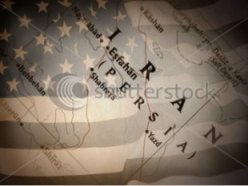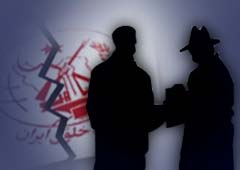The representative of the Jewish minority in Iran’s parliament (Majlis) has recently given an extensive interview to the Iranian Fars News Agency and discussed his different viewpoints regarding the Israeli  regime.
regime.
According to Siamak Mareh Sedq, Tel Aviv needs to create crisis in the Middle East in order to survive. “If Israel faces no threat it will be destroyed within one month. Israel needs (regional) crises in a bid to continue its existence,” he said.
This analysis is exactly what the audacious commentators, intellectuals and journalists in the West who dare to criticize the policies and practices of the Israeli regime without fear of losing their jobs or being vilified as “anti-Semites” agree on. This is something that even the Israelis know well and confess to. An anonymous Israeli official once privately told the president of the National Iranian American Council Trita Parsi, “You have to recognize that we Israelis need an existential threat. It is part of the way we view the world. If we can find more than one, that would be preferable, but we will settle for one.”
But what I want to touch upon today is not Israel’s illegitimate and unlawful military attacks on Jordan, Egypt and Syria in 1967 or the Osirak nuclear reactor in Iraq in 1981, even though all of these events need investigation and contemplation as the crises which Israel has nimbly created in order to consolidate its position in the Middle East and secure its fragile survival by the use of military force.
What I want to allude to is the crisis which Israel manufactured around one decade ago to make sure that the international community will be busy dealing with the different aspects of the crisis until finding a solution, and in this period, it can work to build more settlements, kill or imprison more Palestinian leaders and fortify the castle of its nuclear monopoly in the Middle East.
The crisis that Israel manufactured was the controversy surrounding Iran’s nuclear program. This is the topic which the prominent American investigative journalist and historian Gareth Porter skillfully discusses in his recently published book “Manufactured Crisis: The Untold Story of the Iran Nuclear Scare.”
"Israel has been pulling all the stops to foil the endeavors of Iran and the international community to settle their dispute."
Although Gareth Porter does not concur with me on all points I have mentioned, he generally shed a light on “how Israel and the George W. Bush administration successfully portrayed the various actions taken by Western nations and the International Atomic Energy Agency (IAEA) as responses to a long history of Iranian covert work on militarization of its nuclear program.”
The breakthrough book which is the product of Gareth Porter’s six years of close investigation of Iran’s nuclear standoff and the developments of Iran’s foreign policy tries to show that Iran’s civilian nuclear program has been used as a pretext by the United States in unison with Israel to put pressure on Iran and extinguish its technological and political progress.
Porter says that the IAEA used documents as the reference of its allegations and accusations against Iran that were provided to it either directly by Israel or through the terrorist cult Mujahedin-e-Khalq (MKO or MEK) which was just recently removed from the U.S. Department of State’s list of foreign terrorist organizations in an attempt to provide political shelter for the group which sees Tel Aviv as one of its main benefactors and sponsors.
The book provides reliable and confirmable evidence showing that Israel was one of the main culprits behind the complication of Iran’s nuclear dossier through forging false documents and evidence and presenting them to the IAEA.
Porter’s book published by the “Just World Books” is a must read and is praised by such figures as the renowned American director Oliver Stone, leading investigative journalist Seymour Hersh, prominent Middle East expert Juan Cole and former U.S. ambassador to Saudi Arabia Charles W. Freeman.
Gareth Porter’s book inspired me to think about the crisis that has been manufactured in the most wicked way by Israel and its patrons and led to years of animosity and acrimony between Iran and the West, in particular the United States. The controversy surrounding Iran’s nuclear program soared when the IAEA Board of Governors, under the pressure by the United States, voted in 2006 to refer Iran’s nuclear file to the UN Security Council.
It was after then that the economic sanctions began being shot at Iran one after the other. The inhumane, illegal and unjustifiable sanctions created different hardships for ordinary Iranians, including the patients suffering from chronic disorders in need of foreign-imported medical equipments and pharmaceutical products.
The “manufactured crisis” not only embittered Iran’s trade with the United States and the European Union, but also imposed costs on the European firms that sustained significant damages as a result of cutting their business with Iran.
There are credible statistics showing that in such countries as Germany and France, thousands of people lost their jobs due to the direct or indirect consequences of the economic sanctions. The sanctions which were pioneered and cheered by Tel Aviv also caused serious irregularities in international banking systems and protocols and brought about disastrous outcomes for the global economy.
However, after almost one decade of dispute and quarrel, Iran and the six world powers have once again sat at the negotiation table, and the first outcome of their intense negotiations became evident in November 24, 2013 when they reached an interim agreement in Geneva known as the “Joint Plan of Action” by which Iran would limit certain portions of its nuclear activities and will receive relief from some of the important parts of the sanctions it has been enduring in the recent years. This is what dissipates and fritters away more than one decade of Israel’s efforts to hamper Iran’s relations with the world and embroil it in a stalemate over its nuclear program.
As the negotiations for a comprehensive and final agreement between Iran and the P5+1 (five permanent members of the UN Security Council plus Germany) get started in Vienna, Israel finds itself in an awkward position that will be costing it a lot if the talks lead to substantive and successful results.
Israel has been pulling all the stops to foil the endeavors of Iran and the international community to settle their dispute, which is why the Israeli Prime Minister Benjamin Netanyahu called the Geneva accord a “historic mistake” and the “deal of a century” for Iran.
The fact that Iran’s nuclear file was passed to the Security Council by the IAEA, that the Security Council decided to impose four rounds of sanctions on Iran in its eight resolutions regarding Iran’s nuclear program, and also the fact that the United States, in the past ten years, went through fire and water to make sure that Iran will remain under huge economic and political pressures indicate that Israel was pleased and somehow relieved as it could see that its efforts to manufacture a new crisis in the region were bearing fruits. No conscious mind would accept the claim that Israel didn’t play a central role in Iran’s nuclear standoff.
By Kourosh Ziabari , albawaba.com




